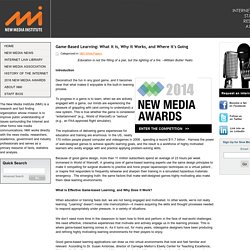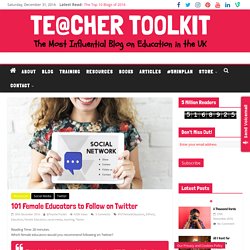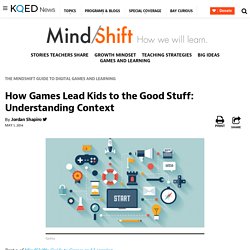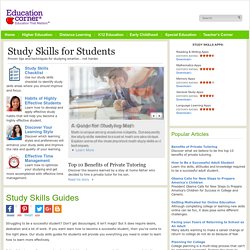

Gamification Champions Create Big Wins on Campus. In organizational change theory, “champions” are individuals who push an organization past its comfort zone into new, rewarding territory.

These are the people with a knack for gently bringing along the doubters and the naysayers, accomplishing this feat with diplomacy, positivity and skillful problem-solving. Faced with the challenge, “We don’t know how,” champions say, “We’ll figure it out.” An opportunity exists for college IT champions to help educators embrace gamification. Proponents of gamification, which initially flourished in K–12, say it offers just as many benefits for college students. Well-designed games boost engagement, hone critical thinking skills by requiring students to plan and strategize, and clarify abstract concepts that may be hard to grasp through reading and lecture alone.
A Winning Partnership North Carolina State University tried this to great success. UniversITy. Game-Based Learning: What it is, Why it Works, and Where it's Going. Education is not the filling of a pail, but the lighting of a fire.

–William Butler Yeats Introduction Deconstruct the fun in any good game, and it becomes clear that what makes it enjoyable is the built-in learning process. To progress in a game is to learn; when we are actively engaged with a game, our minds are experiencing the pleasure of grappling with (and coming to understand) a new system. This is true whether the game is considered “entertainment” (e.g., World of Warcraft) or “serious” (e.g., an FAA-approved flight simulator).
The implications of delivering game experiences for education and training are enormous. Because of good game design, more than 11 million subscribers spend an average of 23 hours per week immersed in World of Warcraft. We Didn’t Know What We Didn’t Know: Flipped Learning 3.0 – Flipped Learning Global Initiative. By Jon Bergmann and Errol St.Clair Smith Pop Quiz: Most educators know about the Socratic method.

True or false? Let’s go with true. But why was Socrates called the wisest man in the world? The answer? Fast Forward a Couple Thousand Years. Today, with a swipe and a few keystrokes, we can access virtually all the knowledge in the known world from a device that’s smaller than an index card. Stepping Into a Passion for Neuroscience.
5 Ways to Use Student Choice to Improve Learning. McGraw-Hill Education: Digital Study Trends. 101 Female Educators to Follow on Twitter. Reading Time: 20 minutes.

Which female educators would you recommend following on Twitter? This is a list of people I have been following on Twitter since 2008. They are not all teachers, but educators in various sectors and countries, curated from online interactions to those whom I have met and have developed professional relationships. I follow about 650+ accounts, so this list represents some – not all – of the female educators I am following and my way of saying ‘thank you’. Context Needed: This has not been an easy post to curate – currently with 39 saved versions of this post – written on and off over 3 days. From the outset, let me be clear why I am posting 101 Female Educators to Follow: This is a list all in one place, designed for those new to Twitter.
When sharing accounts to follow with others, click the link underneath each biography to ‘shout-out’ that person; it will include the hashtag #101FemaleEducators. Awesome Quotes on Learning in the Digital Age. About ETR Community.

How Games Lead Kids to the Good Stuff: Understanding Context. Part 2 of MindShift’s Guide to Games and Learning.

Those who still think of content as the driving force of education may not be ready for game-based learning. What do we mean by “content”? In this age of digital media, “content” is what web designers, TV producers, and media moguls talk about. Articles, TV shows, YouTube videos, photos — that’s all content. In the classroom, what we usually call content is what students have retained if teachers have met their learning objectives. The underlying assumption of an education system that relies so heavily on test-based assessment is that content is what matters. Iable artifacts. For those who prioritize learning that can be measured using only quantitative assessments, game-based learning probably just looks like a way to increase student engagement and content retention.
Games in the classroom can encourage students to understand subject matter in context — as part of a system. Remember Pac-Man? Remember Space Invaders? Gamify Your Classroom. The Flipped Classroom. Study Skills Guide: Study Tips, Strategies & Lessons for Students. Struggling to be a successful student?

Don't get discouraged, it isn't magic! But it does require desire, dedication and a lot of work. If you want learn how to become a successful student, then you've come to the right place. Our study skills guides for students will provide you everything you need in order to learn how to learn more effectively. Active listening, reading comprehension, notetaking, stress management, time management, testing taking, and memorization are only a few of the topics addressed in our study skills guides for students. General Study Skills Guides The following are general study skills guides, tutorials and articles for students, parents and teachers that offer proven tips and strategies for improving study skills habits, effectiveness and learning ability. MIT Scheller Teacher Education Program.